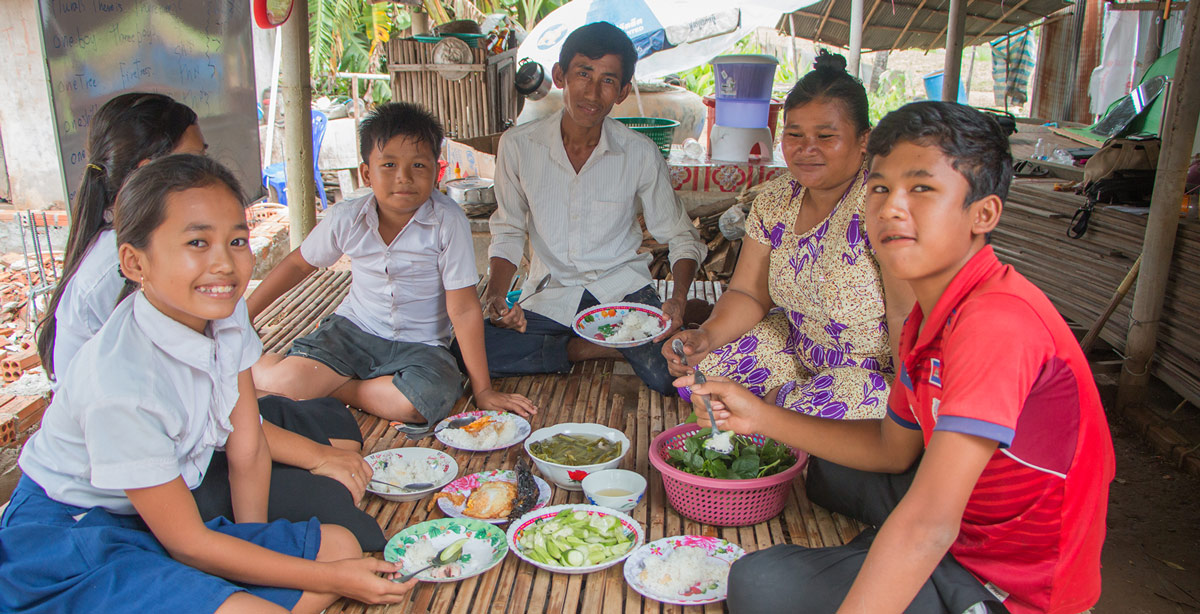Breaking the cycle of chemicals and debt: organic farming in Cambodia

By vast
Published: May 27, 2019
Category: The Organic & Non-GMO Report Newsletter
Keo Nov is a farmer in the Kandal Province of Cambodia. Together with his wife, he farms approximately 1,200 square meters of land, nearly a third of an acre. They have been managing their farm organically for about 5 years, growing over 20 kinds of vegetables which they eat and sell. Their four children now all attend school.
A vicious cycle of chemicals and debt
“In the past, we used to grow our vegetables using chemicals but we had a lot of issues with it. We didn’t feel very comfortable spraying the food we wanted to eat with so many harmful substances that also cost us a lot of money. Market prices often changed a lot and went down. We only grew a few crops and were often forced to sell our produce for a very low price, otherwise, it would go to waste. This led to financial problems in our family and put us into debt.
“Then in 2013 Ms. Sieng approached us and spoke to us about the opportunity to farm organically. Ms. Sieng was interested in sourcing organic vegetables for shops and local markets and needed farmers she could buy from regularly. This was a bit of a risk for us because we didn’t know how it should work.
“She helped us to get funds to invest in a new house to protect the vegetables from insects, so we could grow vegetables more easily without chemicals. In addition, she promised to pay us a fair price for our produce regardless of market instabilities.”
Less worries and a brighter future
“In 2016, Ms. Sieng suggested we join a Participatory Guarantee System (PGS), a group made up of farmers, consumers, and local government representatives that would allow us to label our produce as organic. This means we can charge a fair price for what we sell, and our customers can be sure the food they put on their plates has been produced sustainably and free from harmful inputs.
“This has really helped us. The other farmers in the PGS showed us how to build a buffer zone to protect our farmland from chemical inputs our neighbors use. We also got tips on compost making and now see a great improvement in our soils. Recently, with assistance from Ms. Sieng, we invested in a plastic house, which means that we can now grow vegetables in the rainy season when it used to be difficult to grow vegetables so local supply was low.
“Another important change in our life is that we have gotten out of debt. In fact, not only are we out of debt, but we can now afford to send our children to a better school and are saving to build a new family home.
“I also hope that one of our children will go to agricultural college to learn more about organic agriculture and make our farm even better. Overall, I would say we now have less worries and see a brighter future.”
Source: Organic Without Boundaries
To view original article, visit:
https://www.organicwithoutboundaries.bio/2018/04/18/pgs-cambodia/








